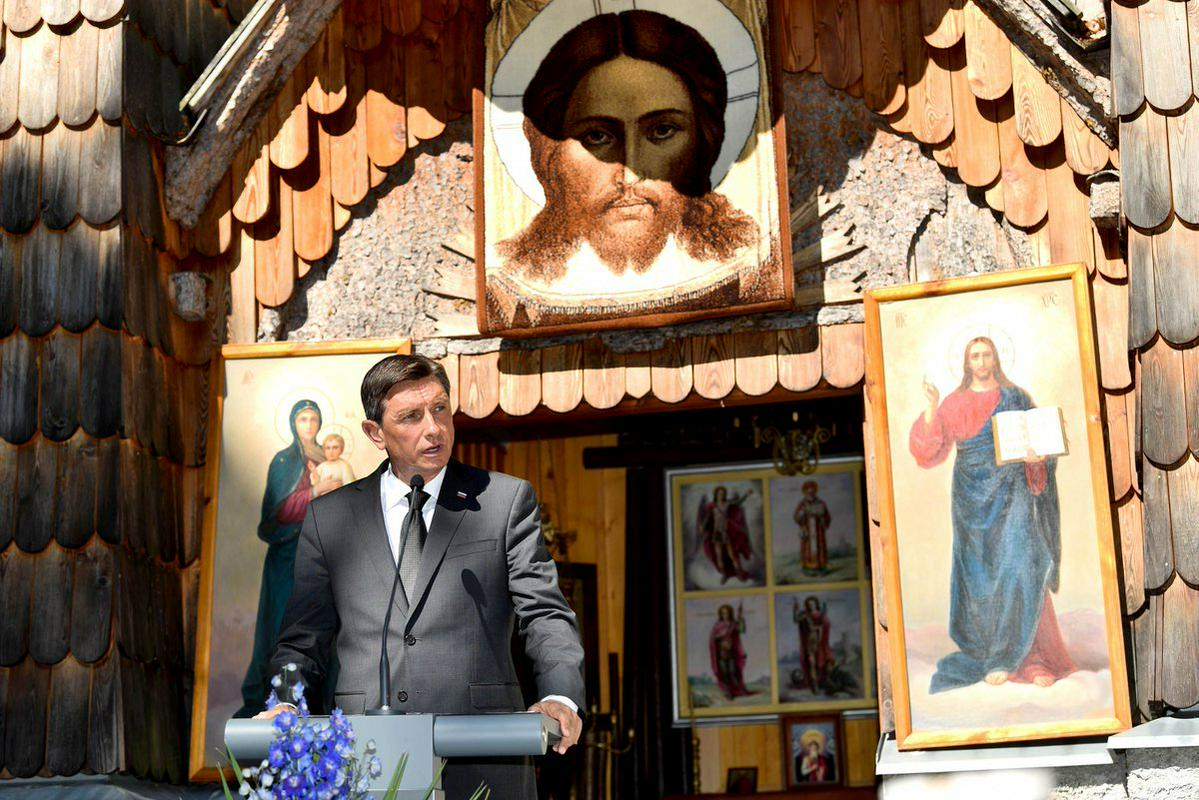In his address, President Borut Pahor said that the memorial ceremony for Russian war prisoners who died in an avalanche may be regarded as the beginning of the world-wide commemoration of the end of the First World War, which will be completed with a grand ceremony in Paris this November. "This year we remember the end of this tragic fracture of humanity. We remember endless happiness and giant hope, which finally resonated excitedly after four years instead of cannon grenades," he said.
But even this anniversary, the anniversary of the end of a war, in Pahor's words comes in some ways with mixed feelings. Since the First World War, mankind did not learn enough to prevent the second one. "This is rightly a cause for concern and worry. We are asking the simplest question: have we learnt enough from the tragedies of the first and second world wars that there will not be a third one?" asked Pahor.
In his view, there is hope for lasting peace. "Peace is the most inspiring goal of our efforts for mutual respect, cooperation and peaceful resolution of all conflicts. The pursuit of lasting peace is the noblest endeavour of modern humanity," the president stressed, calling for the prevention of all forms of intolerance and violence.
The visitors of the ceremony were also addressed by the head of the Russian delegation, Minister of Digital Development, Communications and Mass Communications Konstantin Noskov. According to him, the Russian Chapel is a unique place that deeply moves every Russian. "It is here that we feel a connection between centuries and generations, which unites us both with our ancestors and descendants. It is symbolic that the chapel survived all of these historical cataclysms that Europe experienced in the last century – when countries emerged and fell apart, when borders shifted,” concluded Noskov.


































































